This video shows how Rosshall Academy created their Carbon Clean app, focussing on the small changes we can make to fight climate change.
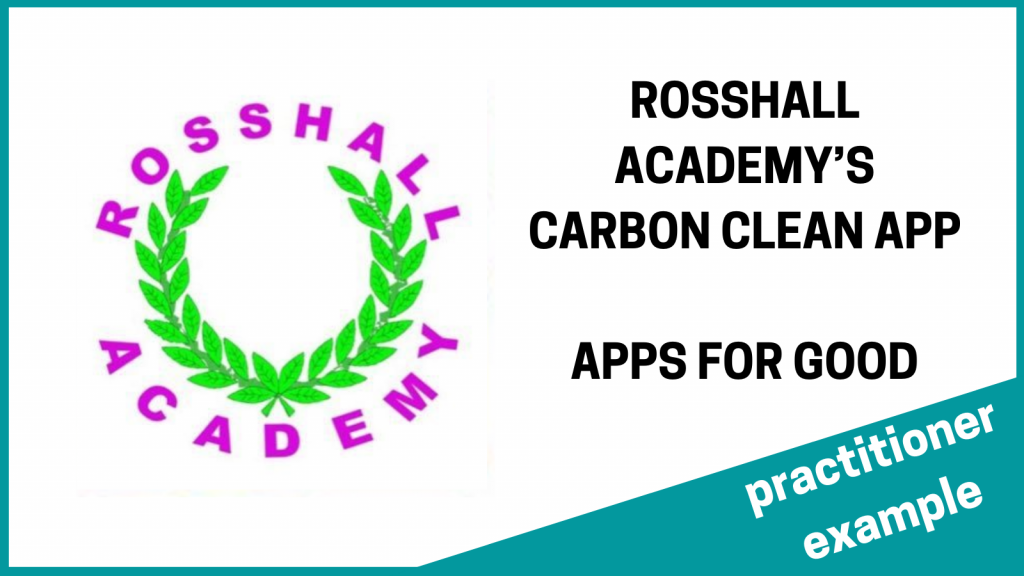

This video shows how Rosshall Academy created their Carbon Clean app, focussing on the small changes we can make to fight climate change.
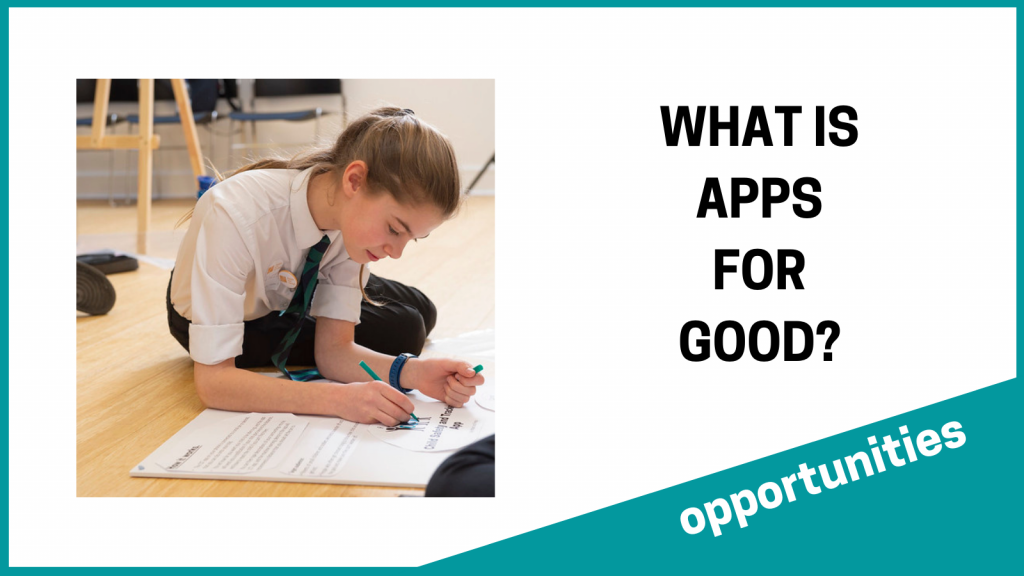
Too many young people don’t have access to the skills they need to succeed in life. Since 2010 Apps for Good have been working with teachers to unlock the potential of over 200,000 students around the UK, and beyond, with our free technology courses. Our courses encourage students to think about the world around them and solve the problems that they find by creating apps and products with machine learning and IoT.
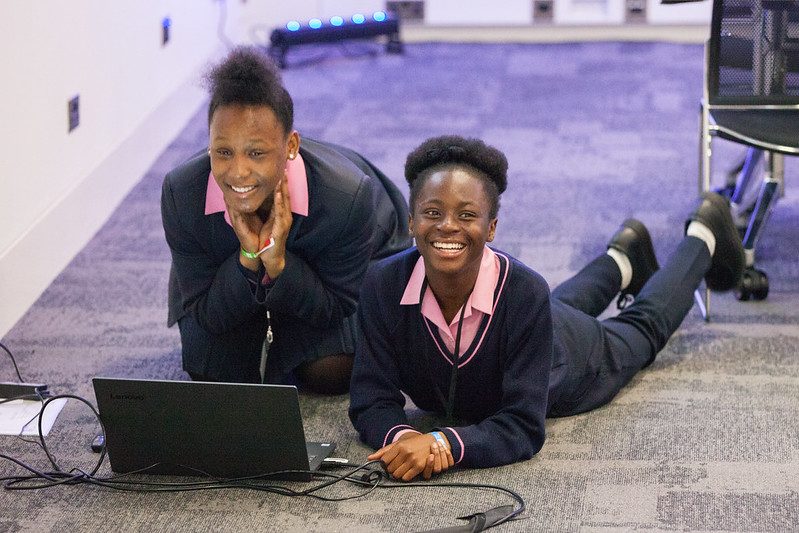
We combine giving students the freedom to tackle issues that matter to them (from food poverty, climate change and mental health issues) with partnering with expert organisations. These partnerships enhance student’s learning experience by pairing them with companies that they admire; like LEGO, Spotify and Deutsche Bank. Which provides opportunities for students to get direct access to people working in the technology industry and get real-world experience on how to develop their tech products. Industry interactions can bring to life the skills students are learning through our courses and how to apply these skills in the workplace. Volunteers can also show young people the many different careers they might be able to pursue with digital skills, and the many different routes to success.
Young people across Scotland have the opportunity to try out our free courses either self-directed, in after school clubs or as part of their curriculum. Each course involve students:
A teacher decides how they’d like to deliver the course, whether in-class or remote and if they’d like the additional support of the Apps for Good team and our experts to help them deliver the course.
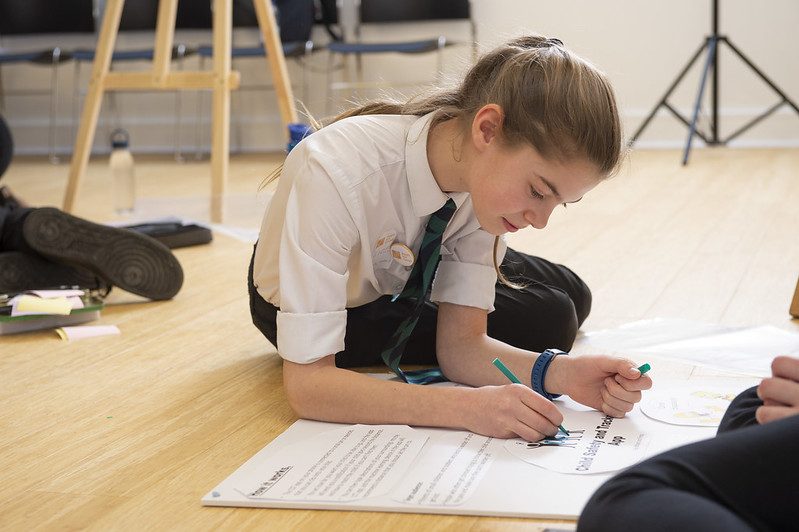
“The opportunities that some of my students have had because of Apps for Good has really set us apart. It’s been absolutely incredible to think that a school in rural Scotland has managed to send kids down to London to internships at Thomson Reuters; for the Apps for Good Awards – some had never left the county before… A lot of my students have gone on to choose careers in digital simply because of where things started with Apps for Good.” – Chris Aitken (@skipperaitken), Educator, Wick High School.
Over the years others include:
A key to Apps for Good success is that it places digital training within a real-world context, enabling young people to gain relevant experience, developing the skills and confidence to build digital products to solve problems in their communities and see a clear purpose to their learning.
If you’re interested in learning more and delivering an Apps for Good course in the 2021/22 academic year, visit www.appsforgood.org/courses.

Learn how to explore the app development process, enabling your students (2nd level upwards) to go from idea to technical prototype, solving real world problems that they care about.
Apps for Good is a small independent charity giving young people the skills they need to thrive. For 10 years they’ve worked with teachers to unlock the potential of over 200,000 students around the UK and beyond. Their programmes support young people with the skills and confidence they need to thrive and empower them to be the purposeful innovators of the future. https://www.appsforgood.org/
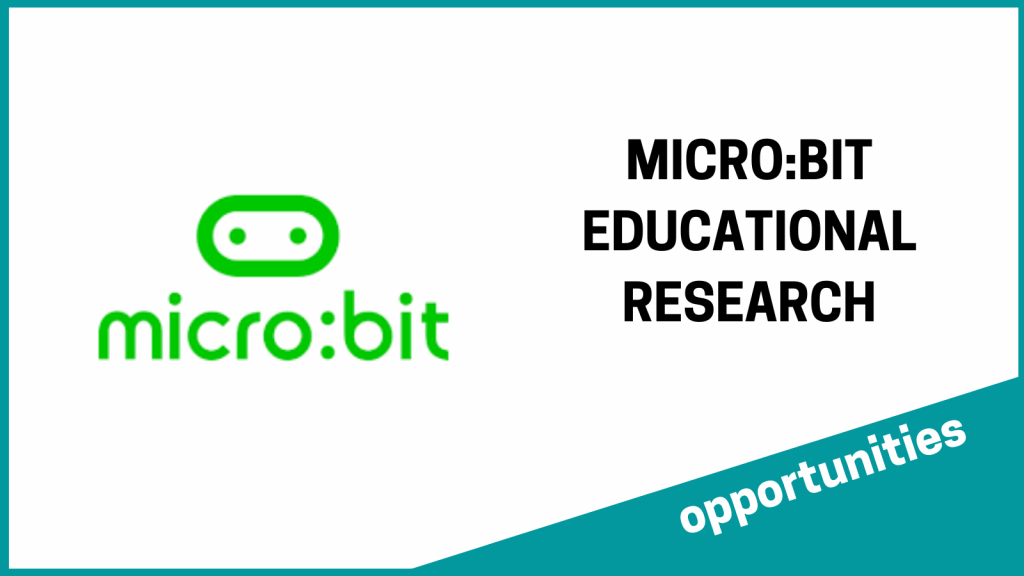
The Micro:bit Educational Foundation are looking for primary school (second level) teachers from Scotland to take part in a piece of research about their experiences in primary education and the teaching of digital skills.
Teachers who take part will be entered in to a prize draw with multiple prizes of £50 and £100 and a top prize of £500 to be won!
The research will help inform a programme of activity, delivered by the Micro:bit Educational Foundation, to support UK primary school teachers teaching digital skills, including free CLPL and classroom resources. Your input in to the research is crucial to ensure the programme gives teachers across Scotland the support they really need.
We are looking to recruit teachers who are willing to take part in a short (10 min) online survey in late September/early Oct 2021 and then again in December 2022 (estimated date) and June 2023 (estimated date).
It’s important that we hear from teachers across the UK and so your contribution to the research will be extremely valued. We want the views of teachers across UK, so make sure Scotland is represented.
Sign up here: https://form.jotform.com/212093636436052
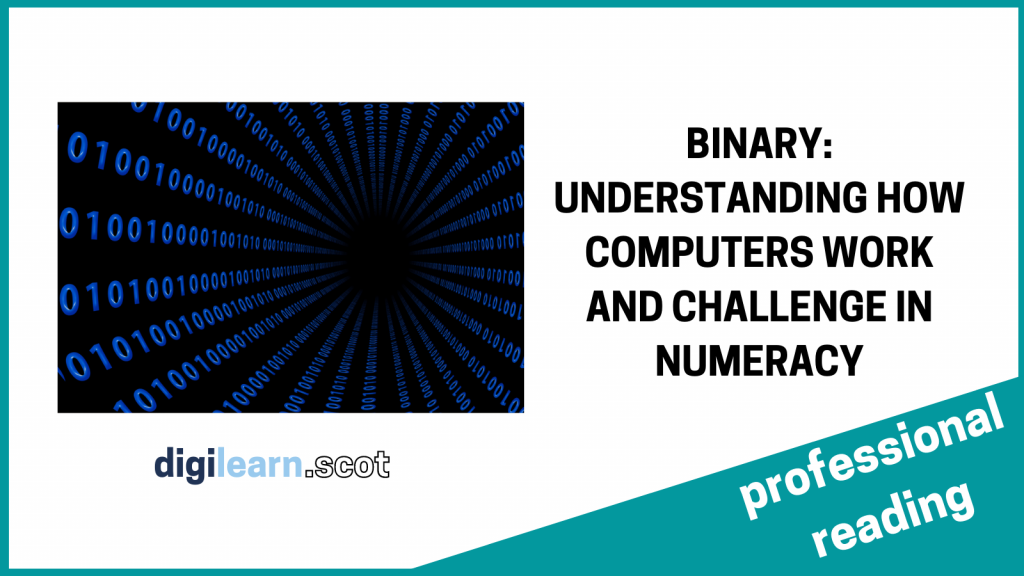
Computers are mathematical machines that operate on digital information, meaning the information is either ‘off’ or ‘on’. This is represented in computing with the binary number system, which only uses 0 and 1. These binary digits are called bits in computing.
So, in computing 0 = off and 1 = on. This allows computers to use a series of ‘switches’ to make decisions based on a series of logical decisions (this is what a computer programme or ‘code’ is).
These pages explore and explain binary further:
What is digital data? – BBC Bitesize
Binary Number System (mathsisfun.com)
Beyond Programming: Binary (code.org)
How computers see the world – Binary – KS3 Computer Science Revision – BBC Bitesize
This could be explored from as early as First Level, MTH 1-12a states that learners should have ‘discussed the important part that numbers play in the world and explored a variety of systems that have been used by civilisations throughout history to record numbers.’
CS Unplugged has 6 great activities to introduce the binary system to young learners.
Everything on a computer is represented by binary, including images. Every image is created on a grid with each box on it called a pixel. Every pixel is either ‘off’ or ‘on’ and represented as 0 or 1. Once learners are confident with this concept you can even get them to calculate the size of larger binary pictures or coloured images – this involves multiples and conversion of units (every 8 bits is converted to a byte!)
These are some fun unplugged activities to introduce learners to binary representation of images:
How do digital images work? – BBC Bitesize
Colour by numbers – CS Unplugged
If you are working with more confident learners, you might want to explore this even further. When the computer uses binary to ‘make decisions’ it is using Boolean logic, which is a form of algebra. Boolean statements are either ‘false’ or ‘true’ – that is they either meet a parameter or value, or they do not. In computing this is represented by binary, so FALSE = 0 and TRUE = 1.
Using Boolean logic in programming – Boolean logic – KS3 Computer Science Revision – BBC Bitesize
Famous mathematicians involved in computing:
The modern binary number system was developed by Gottfried Leibniz in the 17th century.
Boolean logic was developed by George Boole, a 19th century mathematician.
Ada Lovelace invented the first computer programme in the 19th century.
Alan Turing was a mathematician who used one of the first ever computers, called Colossus, to crack the German communications code during WWII, and helping the Allies end the war.
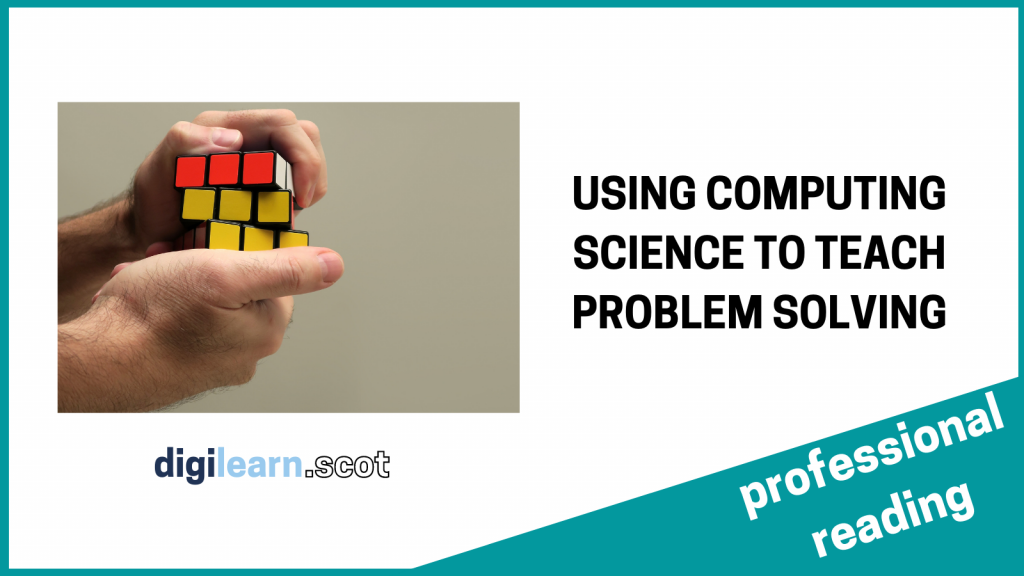
Let us know how you get on with any of these resources on twitter @DigiLearnScot or SHARE YOUR STORY
It might also be worth considering the PRIMM (predict, run, investigate, modify, make) approach to solving problems, and coding, alongside computational thinking skills.
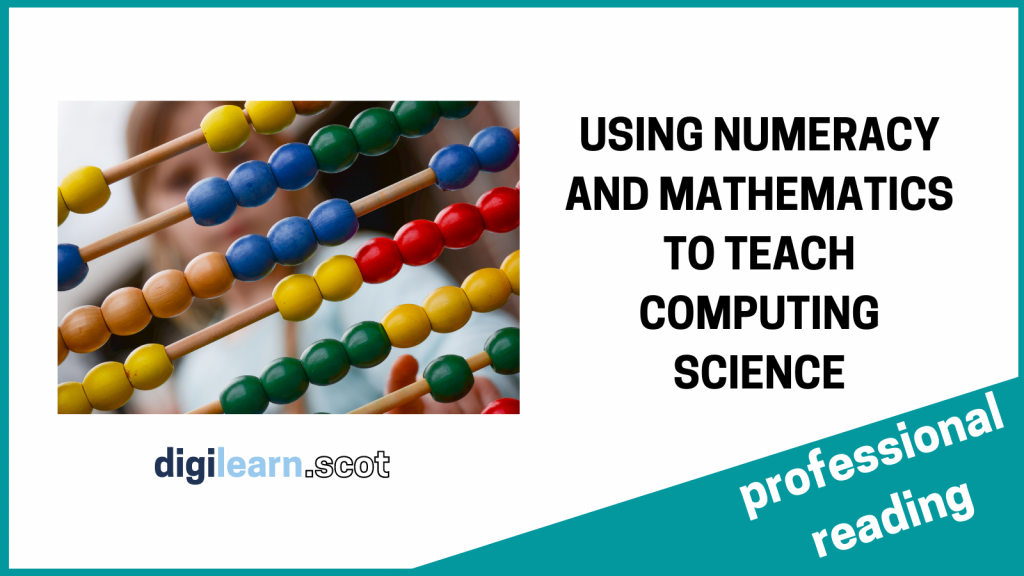
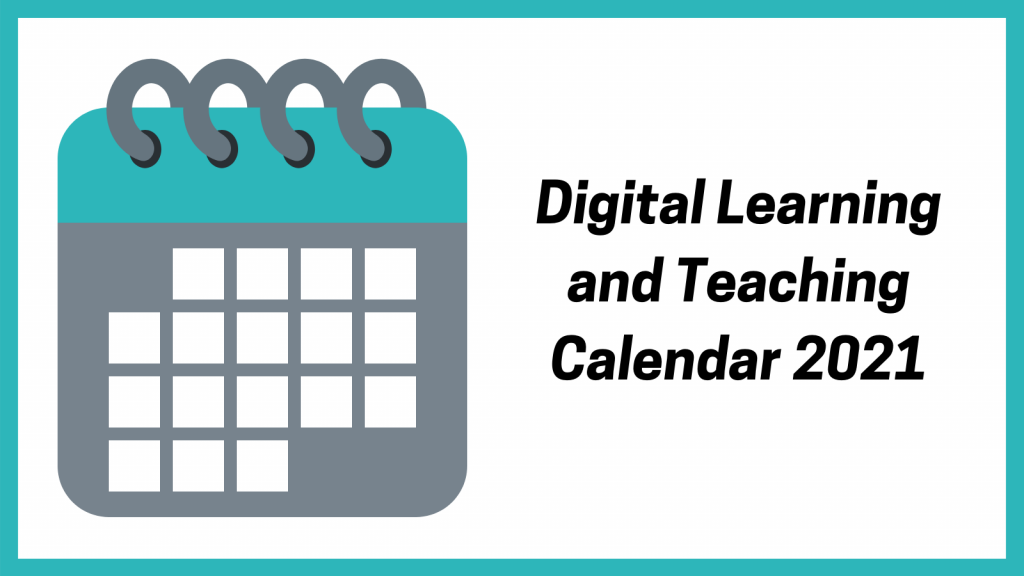
We’ve created this calendar of events to support termly planning for learning and training. We’ll update it as required and we’ll also add extra events to this page too.
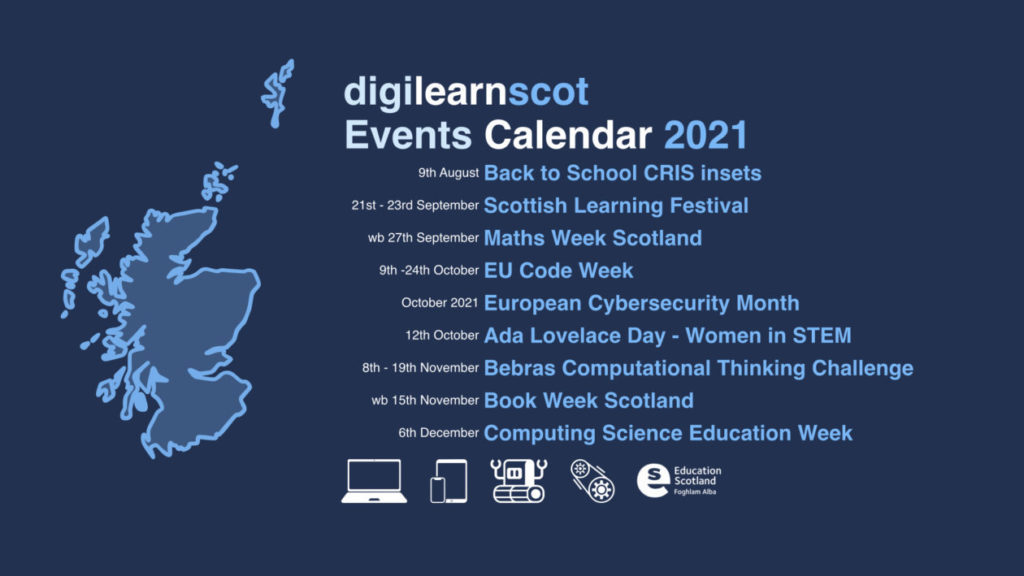
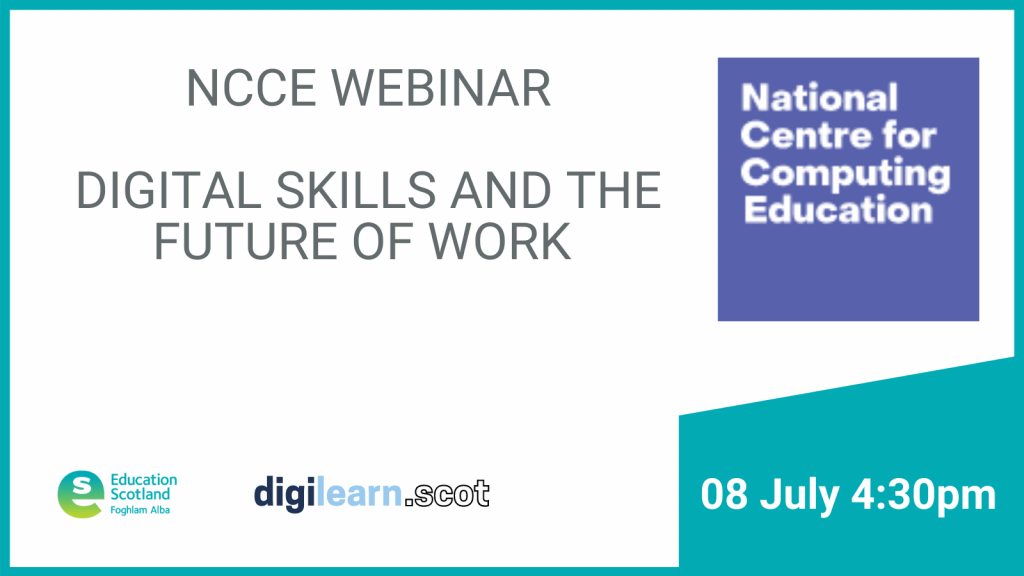
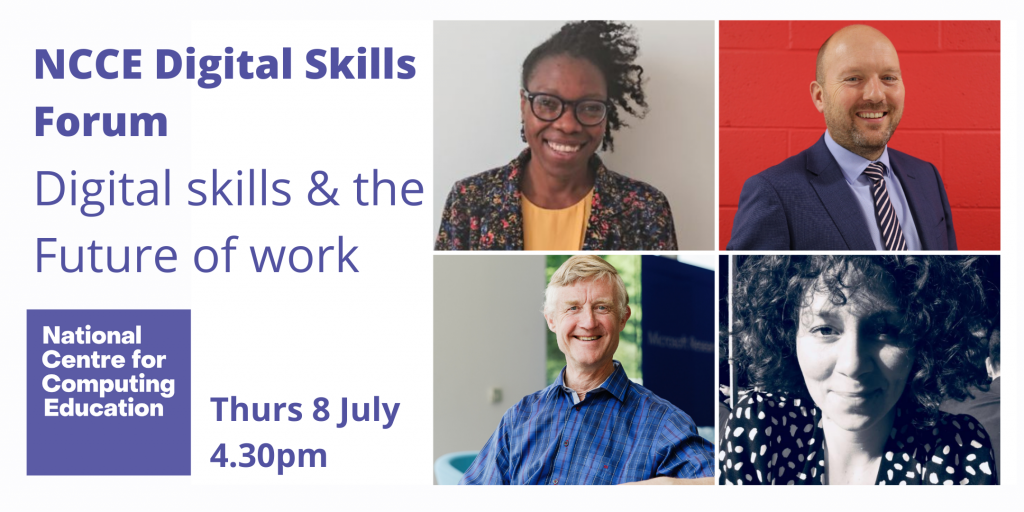
The National Centre for Computing Education would like to invite you to join their exciting online event, exploring the Digital Skills and the Future of Work.
4.30pm – 5.15pm Thursday 8th July 2021
Speakers:
If you have any access requirements please email: compatsch@bcs.uk

The CPD award Introduction to Cyber Security was created for ALL primary and secondary teachers and designed to give background knowledge and understanding related to teaching basic cybersecurity and configuring an environment suitable for cybersecurity education.
The module allows you to get a basic practical understanding of cybersecurity and cyber resilience and the relationship between these two areas of security. This will enable you to have the awareness and confidence to support pupils and create practical activities and content. The module content is levelled at SCQF 7 however is appropriate for teachers delivering to BOTH primary and secondary pupils.
The module will be delivered over 14 weeks and the semester will start week beginning 23rd January 2023 with an online induction and initial lecture.
With the support of Education Scotland, we have funding for teachers to enrol on the module. The usual cost of the module would be £215. It is recommended you apply as soon as possible as the funding will be allocated on date of application.
The courses are open to any teacher with the relevant entry qualifications (degree and existing teaching qualification) who have an interest in computing or cyber security.
There is normally a weekly lecture and support session that lasts for approx. an hour, or more if required, with further e mail support available. The sessions are certainly beneficial as they allow you to ask questions there and then.
However, the course is designed to be taught when is convenient for all the students and all lectures and tutorial session are recorded for viewing at your leisure.
No time off will be required during the school day. The lectures are recorded for students unable to attend in person. All activity is carried out online the majority of which happens asynchronously. The modules have a notional 200 hours per module over the semester. It would depend on your previous experience on whether you needed all that time. If you were able to set aside a day at the weekend or a couple of evenings for study, you would not be far off what is required for achieving the award.
You can apply for the course with this link: https://www.uhi.ac.uk/en/courses/cpd-award-introduction-to-cyber-security/
Please get in touch if you have any further questions using this email: Gordon.macpherson.ic@uhi.ac.uk